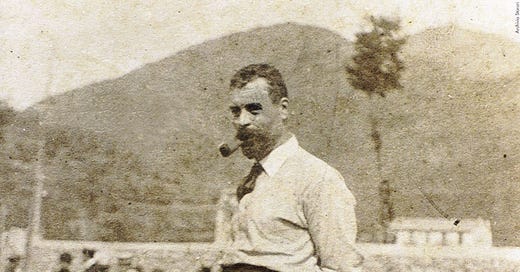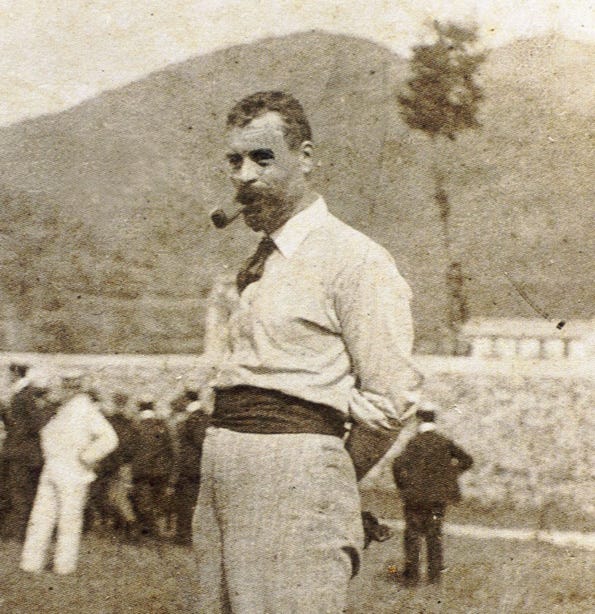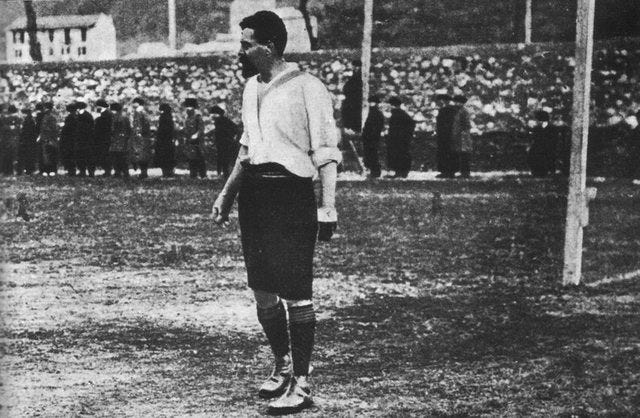The Founder of Italian Football and a War Hero - James Richardson Spensley
Football's Greatest Stories - Issue 2. Spensley is an inspiration and hero beyond the sport.
He was born in London in 1867, and he arrived in Genoa, Italy in 1896. He initially arrived to treat English sailors on coal ships, but shortly after his arrival, his immense love for the beautiful game led to the founding of Italian football itself, with Genoa Football Club being the oldest club in the country, and a club that still competes in the Italian top-flight over a century after its creation. However, his legacy extends beyond the sport, encompassing medicine, scouting, and heroism in World War I. Today, we dive deep into the remarkable life of a man who left a monumental mark on football and on humanity. After weeks of thorough and detailed research, I have compiled all of the information that I can find about his story to give you all of the details about the founder of Italian football’s impact in and out of the game. Let’s begin.
James Richardson Spensley was born in Stoke Newington, London on the 17th of May 1867. Details about his early life are limited, but we do know that he had an insatiable interest in medicine, and went on to pursue this interest by studying Medicine and Surgery at the London Hospital. After graduating, he practiced as an internal surgeon in 1891, and worked as an assistant to John Langdon Down, the physician best known for the classification of Down Syndrome. As previously mentioned, James was sent to Genoa in 1896 to assist crew members of British coal ships that used to land in the area. But his sporting impact was what would make him go down in Italian Football History.
He quickly became involved in the recently founded Genoa Cricket and Athletic Club, and he proposed that they should expand to create a football team, which they did, and which he became the manager of, as well as becoming a player for the team. While working with Genoa CFC, he continued to serve daily at the coast and take care of the crew members who stopped in Genoa, but as well as this, he provided his work as a doctor free of charge to the poorest inhabitants of his local town.
Let’s talk a bit more about Genoa Football Club, and its early dominance in Italian football. Just a year after the football section of the club was founded, Spensley initiated the first Italian Football Championship in 1898, which Genoa won with Spensley playing as a defender. In the following season (and for the rest of his career until 1906) he played as a goalkeeper, and in his time as player-manager, Genoa won 6 of 7 Italian Leagues. Spensley created the most successful club in this first era of Italian football, and without his contribution, the modern Serie A would not exist in the same way that it does now, and Genoa certainly would not still be playing football at the highest level.
Spensley left Genoa Football Club in 1907, but his story certainly does not end there. Spensley worked in the medical field and served as a lieutenant in the British Royal Army Medical Corps. While serving in the British army, he used his medical expertise, knowledge and experience to tend to dozens of injured troops on the battlefield, including British and enemy troops. And it was his sheer, unquenchable compassion that led to his death.
On the battlefield in World War 1, while attempting to save a seriously wounded enemy soldier out of pure compassion, Spensley himself was seriously injured, and he was interned in the Fortress of Mainz in Germany, and while there, he died from the wounds that he had received in the battlefield while attempting to save an enemy soldier. He lived and died a philanthropist and hero, and he is now remembered on the Memorial Wall in Emmanuel Church, Weston, England.
This is probably the most incredible and inspiring story I have ever researched or written about, and I hope you enjoyed reading about it. I would massively appreciate suggestions for what stories I should write about next. Thanks for reading and being a paid subscriber to Football Latest.







